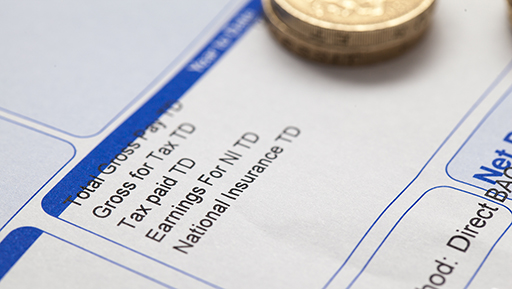5.1 Do I need to make income tax returns?
If you have to make a tax return, the form you complete enables you to assess how much income tax is due – hence the use of the term ‘self-assessment’ when talking about income tax returns. HMRC will, though, check the details. These days you can complete the form online which makes the assessment process quite easy.
If your only income comes from being employed, and from no other source, and if your taxable income is less than £100,000 a year then you don’t need to fill in a self-assessment form.
Common reasons for being in self-assessment for tax include:
- making money from freelance or self-employed work
- getting income from abroad
- letting out property or rooms in your home
- making profits from selling property or investments.
A link to the full list of circumstances that call for a tax return is provided at the end of this session, as well as some guidance on completing a self-assessed tax return.
If you have to complete a self-assessment form, make sure you do so even if you think there’s no outstanding tax for you to pay.
If you’re completing the return online you have until 31 January after the end of the tax year (paper forms must be submitted by 31 October). You need to register for online submission in advance by going to HMRC. A link for this is provided at the end of the session. If you don’t fill in your self-assessment form and submit it on time, HMRC will charge you a penalty (currently £100)..
Any outstanding tax also has to be paid and reach the HMRC’s account by 31 January after the end of the tax year – so amounts due for the 2024/25 tax year would need to be paid by 31 January 2026. Failure to pay on time means that your tax account starts to accrue interest at a penalty rate of 2.5% over the prevailing Bank of England’s Bank Rate.
If your tax-paying arrangements indicate that there will, on an ongoing basis, be tax outstanding after each tax year, the HMRC will set up a tax account for you and you’ll pay your tax in two instalments – the first by 31 January in the tax year and the second by the following 31 July. This reduces the time that the HMRC has to wait for receipt of outstanding tax revenues.
If your annual return shows that you’re due a refund as a result of the overpayment of tax, then you will receive this once HMRC has processed your return.
One final point on tax: tax calculations are formulaic, not personal. You only have to pay the tax that is mathematically due. If you’re owed a refund you will get it.
Next, now that you have covered how incomes are taxed, you will move on to how to build your own budget.

